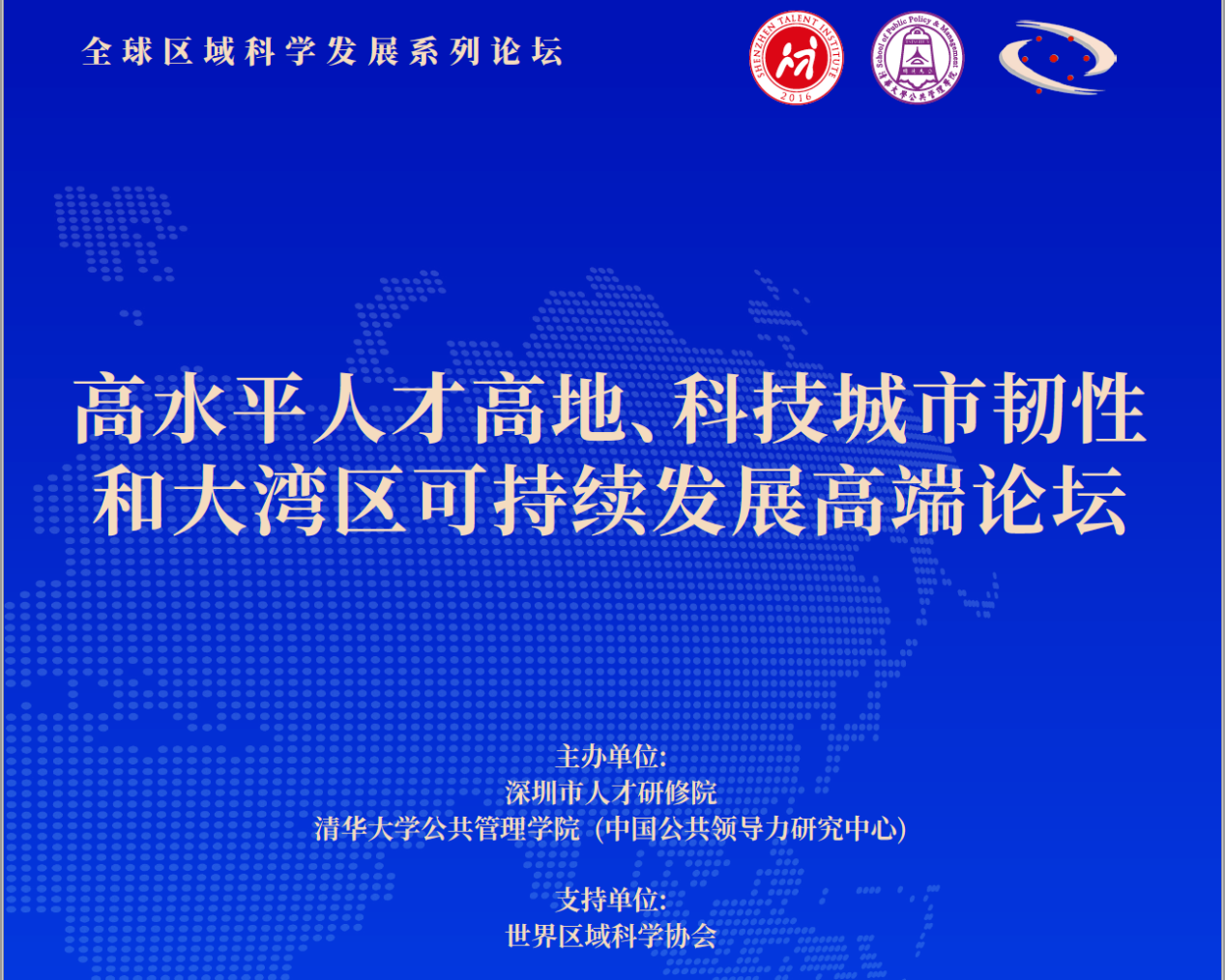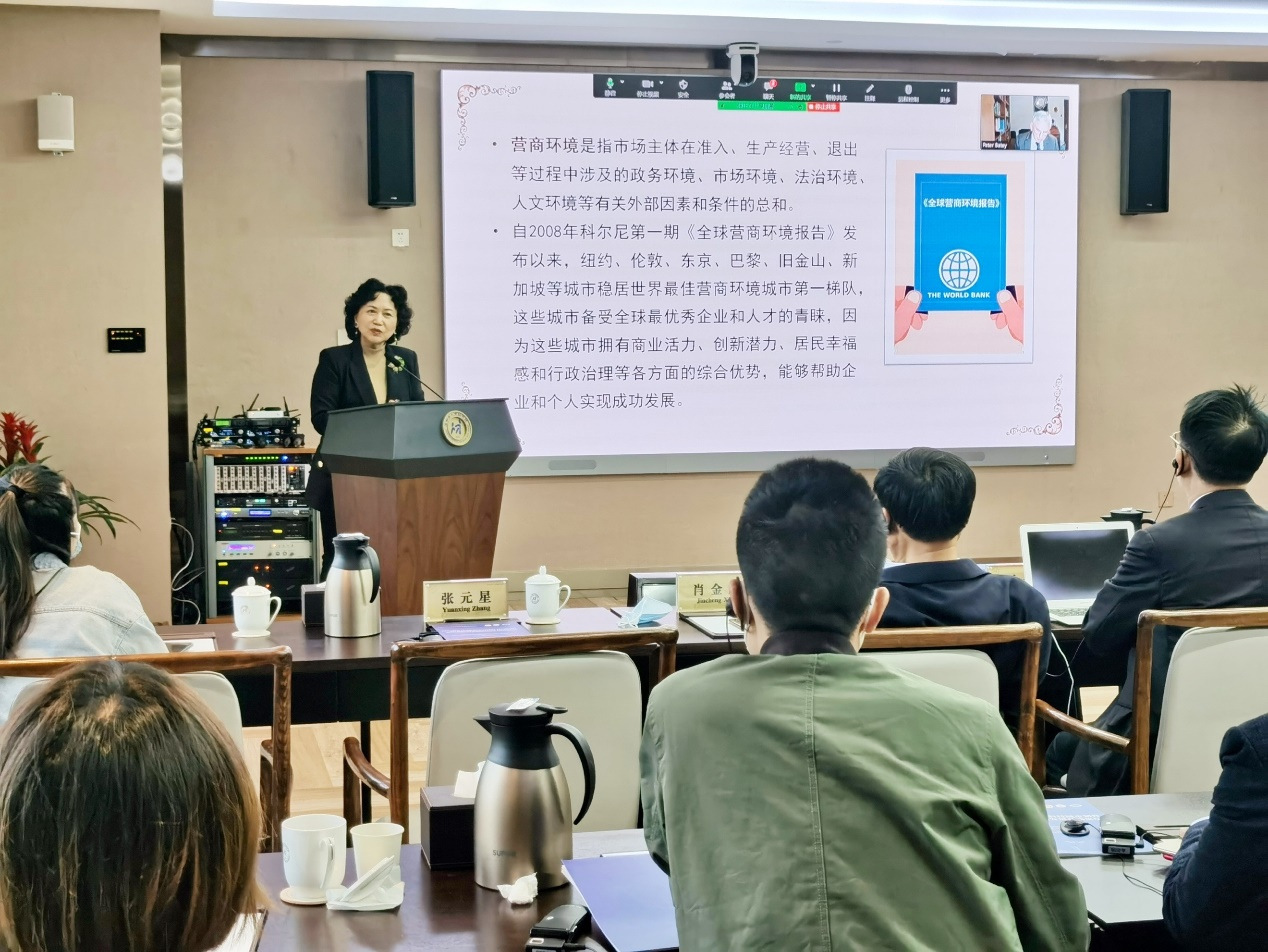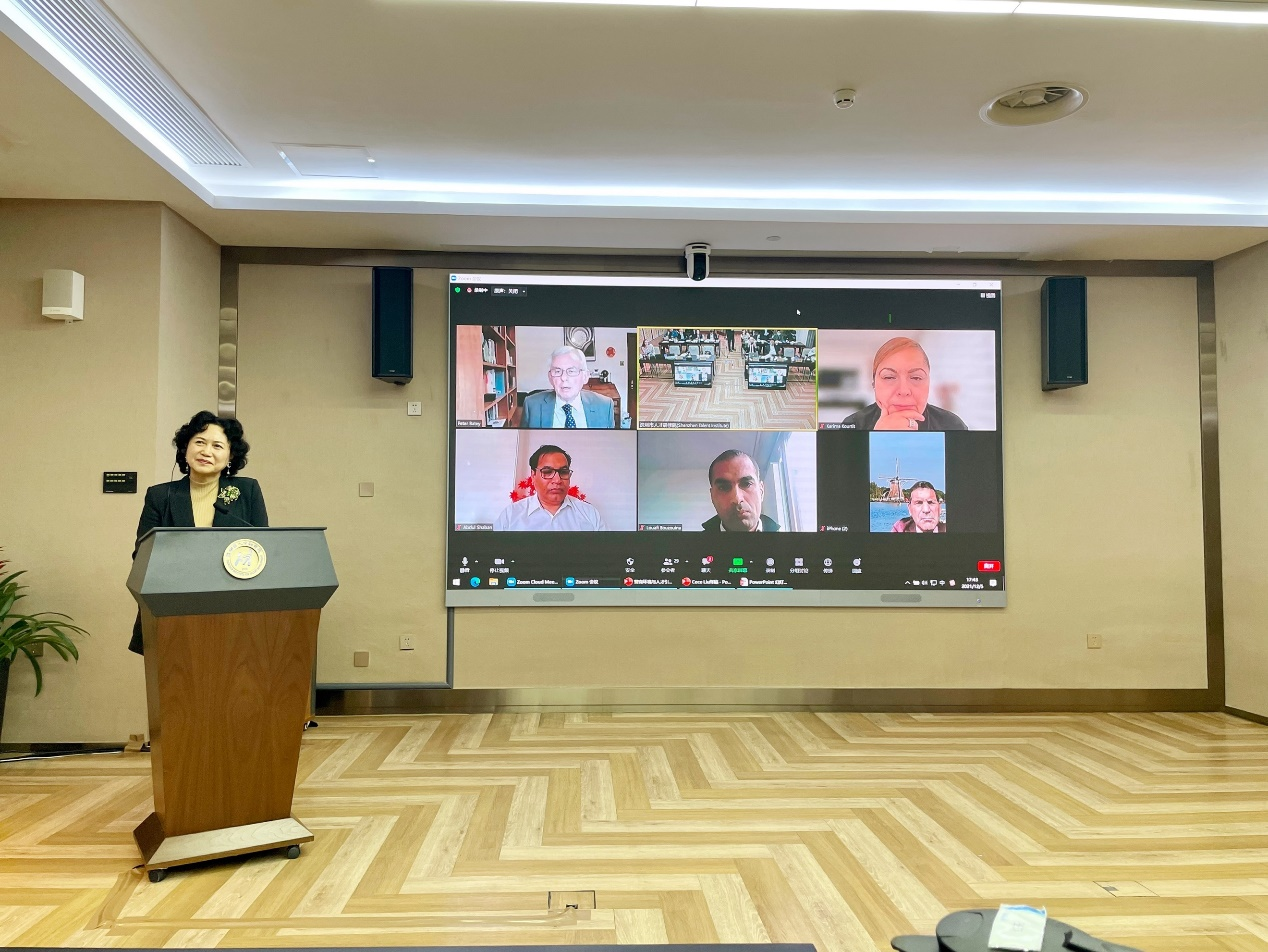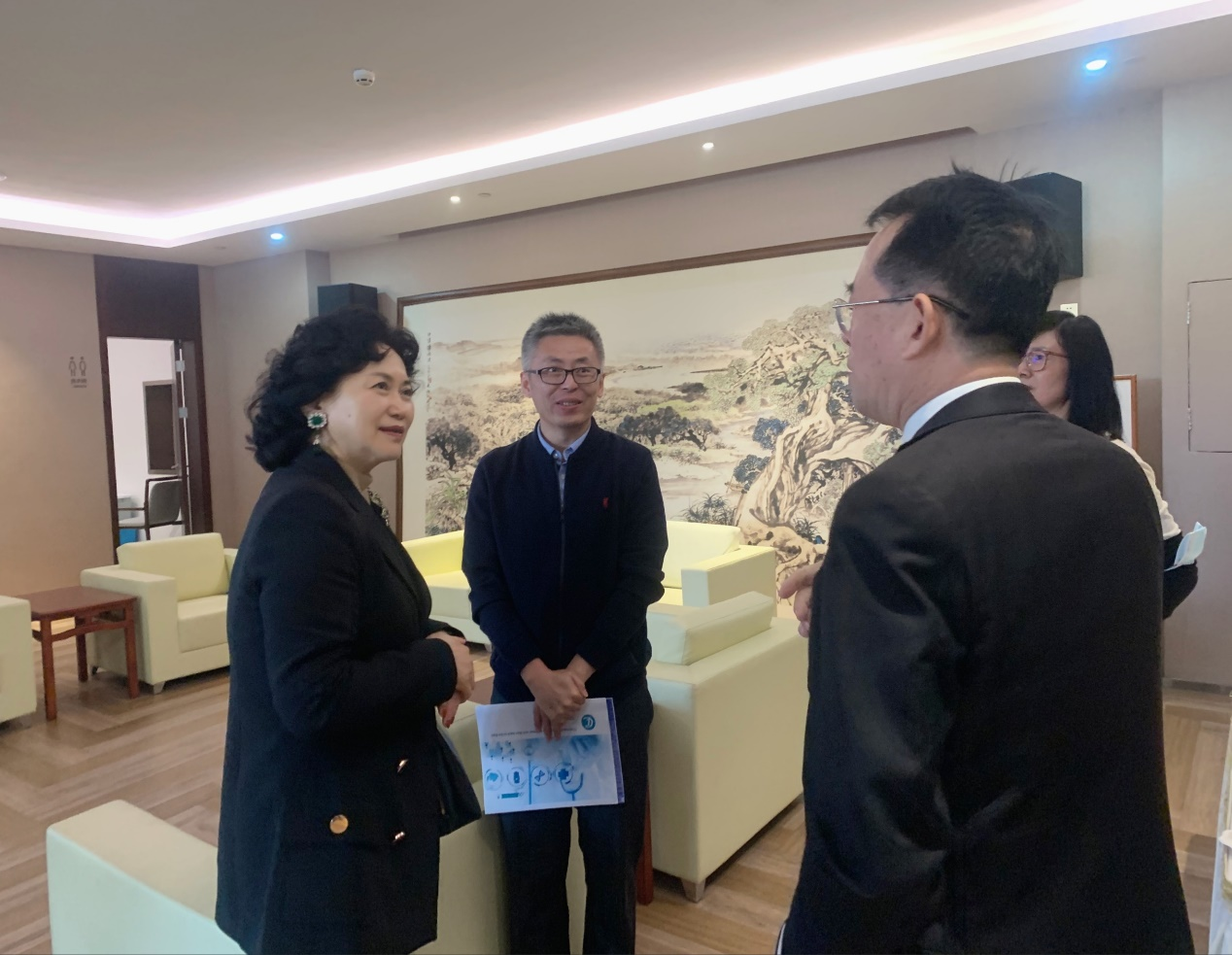On December 5, 2021, Prof. Tao Yitao was invited to attend the “Global Regional Science Development Forum Series” - High-Caliber Talent Development, Technology City Resilience and Greater Bay Area Sustainability International Conference and delivered a speech. She is director of the China Center for Special Economic Zone Research (CCSEZR), Shenzhen University and president of The Belt and Road Research Institute (Shenzhen) for International Cooperation and Development (BRRI).

The conference was organized by Shenzhen Talent Institute and China Public Leadership Research Center, School of Public Policy & Management, Tsinghua University, supported by the Regional Science Academy, and attended by more than 80 global leaders in scientific research from Asia, Europe, North America, South America, Oceania and Africa, including Paul M. Romer, a co-recipient of the 2018 Nobel Prize in Economics Sciences, Guo Renzhong, a member of the Chinese Academy of Engineering, and Rao Zihe, a member of the Chinese Academy of Sciences. These attendees are professors from world-renowned universities. They also serve as chief scientists and heads of top think tanks and academic communities in and outside of China, such as the Regional Science Academy, the World Bank and the Development Research Center of the State Council. New situations, issues and opportunities faced during regional development were discussed through various topics such as innovative development, coordinated development, green development, open development and shared development.


Prof. Tao delivered a keynote speech entitled "Business Environment and Talent Introduction". She analyzed the impact of business environment (institutional environment) on regional talent introduction from the perspective of "business environment", and pointed out that the institutional prerequisite for enhancing the economic value of talented people is to systematically guarantee the free flow of human capital and give the power of free choice. She stated that learning from advanced institutions might help eliminate the time lag, reduce the cost and intangible loss, and enable the government to be more mature, rational and responsible for serving the society and the public during institutional change. She suggested that "institutional environment - talent clustering - city cluster development" forms both a causal chain and an organic complex. Talented people are a high-quality factor of production, and their value is realized via free flow. A society that ensures the flow of factors without institutional barriers can truly attract talented people. In addition, the institutional environment is the basis, the talent clustering is the performance (the achievements of institution and institutional environment), and the city cluster development is the target and result. If a good environment for innovation and entrepreneurship is the basis for talented people to realize their value, a talent-friendly society will be the institutional and cultural environment and even soil for them to stay in and make brilliant contributions to the cities.

Prof. Tao communicates with the experts and scholars



